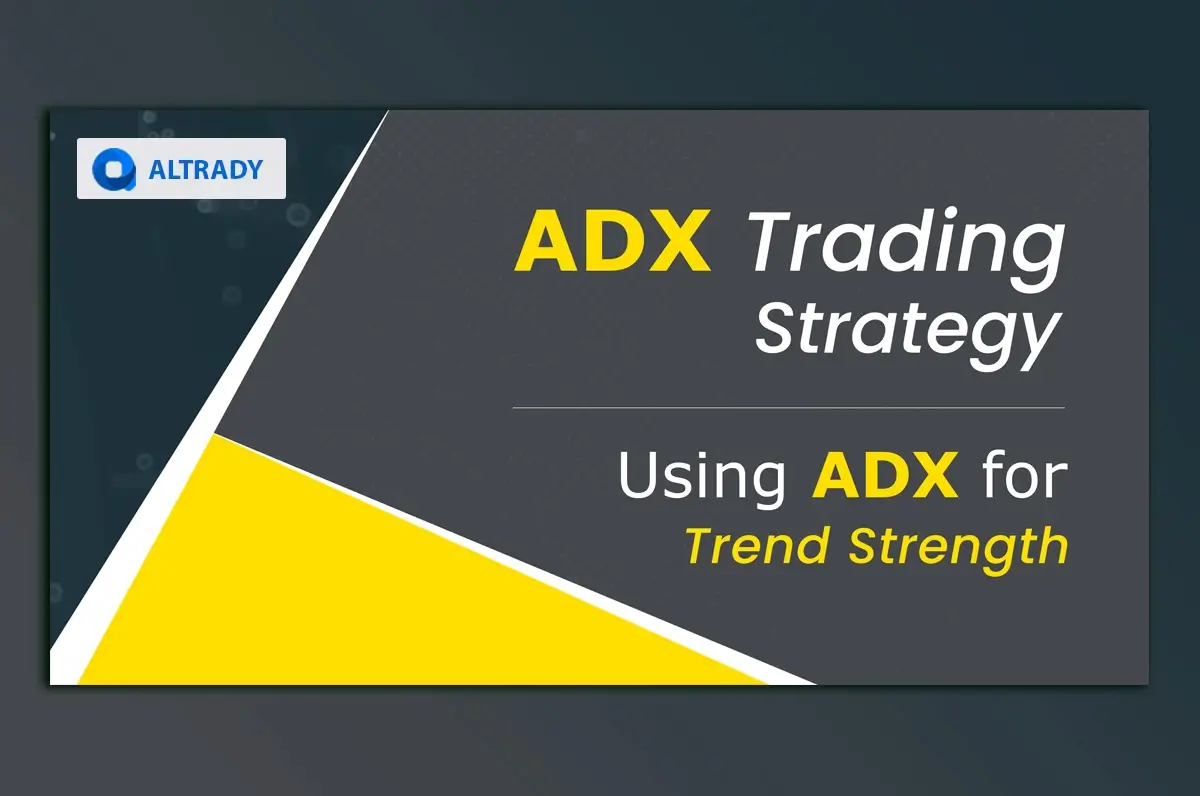Black Friday is loading…
Get 40% off with Altrady’s yearly plan and take the lead.
.svg)
.svg)
.svg)
.svg)
.svg)
.svg)
.svg)
.svg)
.svg)
.svg)
.svg)
.svg)
.svg)

The Average Directional Index (ADX) works on a moving average that gives insights into the trend strength of an asset's price. We will dive deeper into this article to understand how it works and unveil additional applications of ADX to enable cryptocurrency traders to detect, for example, volatile conditions, ranges and breakouts. You can then test it on paper trading later.

All markets, including cryptocurrencies, move in cyclical patterns across sideways ranges or upside and downside movements. When the markets turn in a clear direction, traders can say the price of an asset is trending. When the price is declining, it is a downtrend, but if the price is rising, it is an uptrend.
For an asset's price to start trending, it needs three factors that have to come together, typically in a specific order:
Traders also need to confirm that tendency. For such confirmation, a trend line is implemented, usually joining the highs and lows of the trend. Those highs and lows will be possible as the trend strengthens over time.
By understanding this dynamic, traders can infer the importance of measuring every asset's trend strength, which can present an opportunity for a trend-trading position.
So, let's briefly define each factor.
It is when the price moves substantially, whether at the very beginning or in the middle, even at the end of a trend, typically engulfing the previous movements.
Traders can detect momentum in the following scenarios:
Following the price momentum, the market takes a direction. It can be up or down depending on supply or demand:
Ultimately and most vital for the market to reinforce the direction and preserve momentums in the middle:
Beyond the fact that traders can use it creatively later, the primary and only function of ADX is to measure the strength of trending prices. It is a piece of valuable information for the decision-making process of traders.
A strong trend (higher strength) will confirm the potential entry points that traders can take advantage of to seize the trending market.
A weak trend (lower strength) will invalidate the potential entries traders can execute in the middle of the trending market.
| We can point out other situations too: |
To conduct such readings, the ADX works as follows:
|
|---|---|
|
|
| |
|
Volatility is a crucial aspect to consider when measuring the trend strength. ADX is not made to attend to volatile conditions. It is indeed a lagging indicator.
However, traders can creatively reveal the underlying volatility of the market, most of all in past scenarios in the chart.

A consequential application of measuring the trend strength can be to use ADX as a range finder. When the indicator points to a lower strength as the trend weakens, traders may forecast a potential range formation.
It is a typical situation during trending prices and a general scenario of healthy market cycles. Ranging markets following a trend indicate further continuation or reversion preceding a breakout.
ADX can also help traders during breakouts. When the price breaks out of a range while the ADX is aiming for higher values, traders can be confident about the breakout move for a continuation of a prevailing trend or a trend reversal movement if it is the case.
Although the primary application of the ADX is to measure trend strength, traders can find other manners to seize the indicator. For example:
Similar to MACD and RSI, ADX can show a discrepancy between the price movement and the points of strength in the indicator. With the ADX, it is more interesting:
For trend traders it is crucial to measure the trend strength of a market when they strive to seize a sustainable price movement. Additional applications of the ADX include revealing volatility, finding ranges, estimating breakouts, and even spotting divergence, all based on trend strength.
In Altrady, crypto traders can use ADX. Sign up for a free trial account today, and do not miss the opportunity to measure the strength of crypto assets.